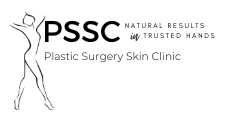The statistics on skin cancer show that it’s one of the most common forms of cancer and one of the most preventable. With summer coming up, protecting your skin from sun damage is going to be even more critical. Proper application of sunscreen can be a literal lifesaver against sun-damaged skin.
This post will explain the benefits of sunscreen and give a quick guide to the difference between chemical and mineral sunscreens. We’ll also show how cosmetic clinics can help provide another way to help fight against skin cancer.
Benefits of Sunscreen for Prevent Sun Damage
Fun in the sun is a part of any summer, but too much exposure to sunlight will lead to sun-damaged skin because of the Ultraviolet Radiation (UV light) transmitted from the sun.
Sunscreen will protect you from UV Rays, with higher Sun Protection Factors (SPFs) blocking more of the UV. While no sunscreen offers total UV protection, it can notably reduce sun damage on the face and other exposed areas.
In fact, not only can UV radiation increase types of skin cancer, but it can also result in damage to skin cells related to fine lines, age spots and dark spots.
Chemical or Mineral Sunscreen Against Sun Damage on Face?
More people are speaking to the difference in “chemical” or “mineral” sunscreens. The purpose of any sunscreen is to absorb or reflect UV Rays. Chemical sunscreens work through chemicals that absorb UV Rays, rendering them harmless. On the other hand, Mineral sunscreens contain substances such as zinc that reflect or repel UV Rays.
Mineral sunscreens are rising in popularity because the ingredients in chemical sunscreens are absorbed into the skin. So far, there has been no proof that any of the chemicals in chemical sunscreen are dangerous, but some still prefer not to use chemical sunscreens on children or for breastfeeding women.
On the other hand…
Chemical sunscreens are popular because they tend to go on “smoother” and are less thicker, leaving less of a residue on the skin. In the end, it’s up to the customer what they prefer – the most important part is protecting against sun damage on the face and exposed body parts.
It’s also important to note that there are other ways beyond sunscreen to minimize sun damage. Certain foods show to have properties that can help sun-damaged skin. Making sure to limit your sun exposure through proper apparel and shade is often the most sensible and more straightforward method to cut down on the threat of sun cancer.
Restoring Sun Damaged Skin
Sun-damaged skin is no joke. Too much sun damage on the face or elsewhere can lead to conditions such as actinic keratosis. This condition can lead to skin cancer.
Thankfully, if you have already developed these conditions, it’s not too late to strike first against cancer risk.
Cosmetic surgery clinics can provide many treatments for sun-damaged skin.
An excellent cosmetic clinic will have a wide variety of options to treat sun damage. This includes chemical peels and microlaser peels. Even if you’re uncertain of your skin condition, a cosmetic surgery clinic can help give you peace of mind.
Learn More About Protecting Your Skin From Sun Damage
At PSSC, we take skincare very seriously. If you have any questions about how a cosmetic surgery clinic can aid with sun-damaged skin, look no further.
Contact us today to get your questions answered or book an appointment. When it comes to skincare and protection from sun damage, a cosmetic clinic can help keep your skin looking ageless.

